It’s happened to all of us at some point. You’re out shooting photos and suddenly your camera sensor is covered in spots. Or maybe you take a picture and it comes back completely black. Cameras are expensive pieces of equipment, so it’s important to be able to tell if the sensor is damaged as soon as possible. In this comprehensive guide, we will answer all of your questions about how to tell if a camera sensor is damaged!

What is a Camera Sensor and Why It’s Important
The image sensor is one of the key components of a digital camera. It’s a light-sensitive chip that converts the photons it gathered through the lens into an electrical signal. This signal is then processed and stored as a digital image. In other words, without a functional image sensor, your camera wouldn’t be able to take pictures.

Main Signs of the Damaged Camera Sensor
Sudden Decrease in Picture and Video Quality
Probably the most obvious evidence of your camera sensor being damaged is a sudden decrease in picture and video quality. If everything looks blurry or there are strange lines showing up in photos, this might indicate problems with the image sensor. In some cases, you may also see a decrease in the dynamic range or color saturation of your photos.
In severe cases, damage to the image sensor can even cause the camera to produce completely black images. This usually happens when there is extreme physical damage to the sensor. [1], [2], [3], [[4]
Presence of Multi-Color Stripes and Spots
If you start seeing strange stripes or spots of color in your images, it’s a big sign that something is wrong with your image sensor. These lines are caused by physical damage to the silicon wafers inside the sensor assembly. In some cases, you may also see vertical lines or even a checkerboard pattern. More often than not, this damage is permanent and cannot be fixed.
One way to test for this type of damage is to take a picture of a solid white wall or piece of paper. If you see any multi-colored stripes or spots in the resulting image, then your sensor is most likely damaged. When you zoom in and out, and the lines don’t move, this is an indication something is wrong with the sensor itself and not the screen. The lines basically become one with the image you just took.
Even if the lines are only appearing on photos taken with a particular lens, it’s still probably the sensor that’s damaged and not the lens. [1], [2], [3], [4], [5]
Dead or Hot Pixels

Of course, it’s also possible to have dead or hot pixels without a damaged sensor but even then, it means that your camera still has some issues you need to check for.
How to Check if Your Camera Sensor is Damaged
So now you know what indicates the damage to the camera sensor. If you suspect your camera sensor is damaged, then don’t worry, there are a few different ways to check it. Let’s go over each one.
Check it for scratches
One of the most common ways that image sensors get damaged is by getting scratched. Sometimes, this can happen if you’re not careful when cleaning your camera’s sensor. Other times, it can happen if something gets inside the camera and scratches the sensor while it’s moving around.
To check for scratches, you’ll need to remove the lens from your camera and take a look at the sensor itself. If you see any dark lines or smudges on the surface of the sensor, there’s a good chance that it’s been scratched. If you’re not sure whether or not what you’re seeing is a scratch, try taking a picture of a sky or a white wall with your camera. In cases when the scratch shows up in your photos as a dark line, then you know it’s definitely a problem. Once you’ve confirmed that your sensor is scratched, there’s not much you can do about it. You’ll either need to live with the scratches or replace the sensor entirely. [2]
By using a lower aperture
Using a lower aperture setting on your camera is another method to look for the damage on your sensor. When you use a lower aperture, less light is able to reach the sensor. This can help you spot any areas of the sensor that are damaged or not working properly.
You can test this by setting your camera to its lowest aperture setting and take a picture of a well-lit scene. Then, take a close look at the image you captured. If you see any dark spots or areas where the image is distorted, it’s likely that those areas of the sensor are damaged. [1], [2], [3]
By using a lower ISO setting
Another thing you should do is try taking a picture at a lower ISO setting. A higher ISO setting amplifies the signal from the image sensor, which can increase and decrease the noise level in your photo as well as brightness. By using a lower ISO setting, you’ll be able to get a better idea of whether or not there’s any damage to the sensor because the noise level will be much lower.

Setting your camera to the ISO of at least 100 will also help you to find dead and hot pixels. If you see any bright spots on the image, those are likely hot pixels. If you see any dark spots, those are dead pixels. [1], [2], [[3], [6]
What to Do If Your Camera Sensor is Damaged?
Once you have taken your camera to a professional or attempted to clean the sensor yourself, there are a few things you can do to prevent further damage:
- Be careful when handling your camera. Avoid dropping it or subjecting it to excessive force.
- Store your camera in a safe place when not in use.
- Keep the lens cap on when not taking pictures.
If you follow these tips, you can help prevent further damage to your camera sensor and extend the life of your camera. [2], [4]
The Importance of Cleaning Your Camera Sensor and Doing It Carefully
Cameras are expensive and delicate tools. A damaged sensor can ruin your pictures, so it’s also important to clean it to prevent any damage. But it’s important to do it carefully to avoid further damage. Here are some tips on how to tell if a camera sensor is damaged and how to clean it properly.

You should clean your sensor every few months, or whenever you notice a buildup of dust on your pictures. Dust can damage your sensor and cause your pictures to be grainy or have specks of dirt.
One of the ways to clean your sensor is to utilize an air blower to remove any loose dust particles. Be careful not to touch the sensor with the nozzle of the air blower, as this can damage it.
You can also try using a special sensor cleaning brush to remove dust from your sensor. These brushes are designed to be gentle on sensors and will not damage them.
Another way to clean your sensor is by using a wet cleaning method. This involves using a special solution and a cotton swab to clean the sensor. Wet cleaning is more effective than dry cleaning, but it can also be more risky. Make sure you know what you’re doing before trying this method. [1], [7]
Comparison of Indicators to Tell if a Camera Sensor is Damaged
This table compares various indicators that can help determine if a camera sensor is damaged. These indicators include dead pixels, hot pixels, image noise, color shifts, and banding.
| Indicator | Explanation | Severity | Possible Causes |
|---|---|---|---|
| Dead pixels | Small black or white dots that appear in the same place on every photo | Low to moderate | Manufacturing defects or physical damage to sensor |
| Hot pixels | White or colored dots that appear randomly on photos, especially in long exposures | Low to moderate | Heat damage or manufacturing defects |
| Image noise | Grainy or speckled appearance in photos, especially in low light | Low to high | High ISO settings, poor sensor quality, or physical damage to sensor |
| Color shifts | Unnatural color cast in photos, especially in certain lighting conditions | Low to high | White balance settings, sensor damage, or lens issues |
| Banding | Visible horizontal or vertical lines in photos, especially at high ISO settings | Low to high | Poor sensor quality, overheating, or electrical interference |
The severity of each indicator can vary depending on the extent of the damage and the type of photography being done. For example, dead or hot pixels may be more noticeable in landscape photography than in portraits, while color shifts may be more problematic for product photography.
If you suspect that your camera sensor is damaged, it’s best to have it inspected by a professional to determine the cause and extent of the damage. Some issues may be repairable, while others may require replacement of the sensor or the entire camera.
Check more articles to learn more about photography:
FAQ
How can you tell if a camera sensor is scratched?
The easiest way to check for is to take a picture of a white wall or piece of paper. If you see dark spots in the image, those are probably dust or dirt on the sensor. However, if you see bright spots or lines, those are most likely scratches on the sensor.
What happens when a camera sensor goes bad?
The image quality of your photos will suffer if your camera’s sensor is damaged. You’ll notice blurry spots, discoloration, and distortion in your photos. If you think your camera’s sensor is damaged, take it to a professional for a diagnosis. They’ll be able to tell you for sure whether the sensor is damaged and what can be done to fix it.
Is it easy to damage a camera sensor?
Yes, it is possible to damage your camera sensor without meaning to. If you drop your camera or knock it against something, the sensor can be jarred out of place. Cleaning your sensor improperly can also damage it. Be sure to follow the manufacturer’s instructions when cleaning your sensor or take it to a professional to have it cleaned.
Do camera sensors wear out?
Yes, over time camera sensors will wear out and lose their ability to produce high-quality images. This is why it’s important to take care of your camera and keep the sensor clean. You can extend the life of your camera sensor by taking good care of it.
What are some common ways to damage a camera sensor?
The most common way to damage a camera sensor is by leaving the camera on and pointing it at the sun. This can cause the sensor to overheat and become damaged. Other ways to damage a camera sensor include dropping the camera, getting dust or other particles on the sensor, or accidentally exposing the sensor to strong light sources.
If you think your sensor may be damaged, there are a few things you can look for to confirm this. First, check for any physical damage to the sensor itself. If there are any cracks or visible damage, it’s likely that the sensor is damaged. Next, check to see if there are any dark spots on your photos that weren’t there before. These dark spots indicate that parts of the sensor are not functioning correctly. Finally, check to see if your photos are coming out blurry or have strange colors. If they do, this is another sign that the sensor is damaged.
If you think your camera sensor may be damaged, the best thing to do is to take it to a professional for repair or replacement. Trying to fix a damaged sensor yourself can often make the problem worse, so it’s best to leave it to the experts.
Can you fix a camera sensor if it’s damaged?
Unfortunately, once a camera sensor is damaged, it cannot be repaired. The good news is that most damage to camera sensors is not permanent, and can be fixed with a simple cleaning.
If you think your camera sensor may be damaged, the first thing you should do is take a close look at your photos. If they are blurry or have strange lines or colors, this could be an indication of damage.
Another way to tell if your sensor is damaged is to try cleaning it yourself. You can purchase special cleaning kits for this purpose, or simply use a soft cloth and some distilled water. Be very careful when doing this, as you don’t want to make the situation worse!
If your photos are still not looking right after you’ve cleaned the sensor, it’s time to take your camera to a professional. They will be able to diagnose the problem and determine whether or not it can be fixed. In most cases, damage to camera sensors is not permanent and can be easily corrected. However, if the damage is severe, you may need to purchase a new camera.
Should you continue using a camera if the sensor is damaged?
If the sensor is damaged, it will likely affect the quality of your photos. If you notice that your photos are coming out blurry or with strange lines or artifacts, it’s probably time to get your camera sensor checked out. Most camera sensors can be repaired, but it’s important to catch the problem early before it gets worse.
If you’re not sure whether or not your sensor is damaged, you can take it to a local camera store and have them take a look. They should be able to tell you if the sensor is damaged and whether or not it can be repaired. In some cases, damage to the sensor may be irreparable and you’ll need to buy a new camera. However, this is usually only the case if the damage is severe.
How can you prevent your camera’s sensor from being damaged?
You should always keep your camera in a case when you’re not using it. This will protect the sensor from being damaged by dust or other particles. You should also avoid pointing the lens directly at the sun, as this can damage the sensor. If you do accidentally point the lens at the sun, turn off the camera immediately and allow it to cool down before continuing to use it.
Is it worth repairing a camera’s sensor if it’s damaged?
As a general rule, it’s not worth repairing a camera sensor if it’s damaged. The cost of the repair will likely exceed the value of the camera. However, there are some exceptions to this rule. If you have a professional-grade camera with a full-frame sensor, or if your camera is relatively new, it may be worth repairing the sensor. In these cases, the cost of the repair will be offset by the increased value of the camera.
If you’re not sure whether or not to repair your camera sensor, you can always take it to a local camera shop and get an estimate. Most shops will give you a free estimate, so you can compare the cost of the repair with the value of your camera. Once you have all the information, you can make an informed decision about whether or not to repair your camera sensor.
How do you test a camera sensor?
The first thing you need to do is take a picture with the camera in question. If the image looks normal, then the sensor is probably fine. However, if the image is blurred or has strange artifacts, then there might be something wrong with the sensor.
To be sure, you can test the sensor by taking a long exposure picture. If the sensor is damaged, you will see black spots on the resulting image. These black spots are caused by dead pixels on the sensor.
If you think your camera’s sensor might be damaged, it’s best to take it to a professional for further testing. They will be able to tell you for sure whether or not the sensor is damaged and needs to be replaced.
How do you know if your camera sensor is fried?
Look for the following signs:
- Your image quality is poor, with lots of noise and artifacts.
- You can’t take long exposures without getting excessive noise.
- Your camera struggles to focus properly.
- There are dark or light spots on your images that shouldn’t be there.
If you notice any of these issues, it’s likely that your sensor is damaged and you’ll need to get it replaced. Fortunately, most camera manufacturers have great warranty policies that will cover sensor damage. So if you think your sensor is toast, don’t hesitate to contact customer service and get a replacement!
Assuming you’ve taken proper care of your camera, sensor damage is usually caused by one of two things: a physical impact (dropping your camera, for example) or exposure to a strong electromagnetic field (like X-rays). So if you want to avoid damaging your sensor, just be careful with your camera and avoid X-ray machines!
Should I clean my camera sensor myself?
No! Unless you are a trained professional, you should never attempt to clean your camera sensor yourself. If you do, you run the risk of causing even more damage and voiding your warranty. So unless you know what you’re doing, it’s best to leave sensor cleaning to the experts.
If your camera sensor is damaged, don’t panic! Most manufacturers have great warranty policies that will cover sensor damage. So just contact customer service and they’ll help you get it sorted out. And in the meantime, keep taking lots of photos!
Can a camera sensor be replaced?
A camera sensor can be replaced, but it is not an easy or inexpensive process. If you are having problems with your camera, it is best to take it to a professional for diagnosis and repair. However, if you are experienced with photography and electronics, you may be able to replace the sensor yourself.
How long does a camera sensor last?
This is a difficult question to answer, as camera sensors can be subject to a number of different factors that can shorten their lifespan. However, there are some general things you can look for to gauge how long your sensor may last.
One factor that will affect how long your sensor lasts is the type of camera you are using. DSLRs and mirrorless cameras have interchangeable lenses, which means that they are more likely to be exposed to dust and other particles that can damage the sensor. Point-and-shoot cameras have a fixed lens, so they are less likely to be exposed to these types of contaminants.
Another factor that will affect your sensor’s lifespan is how often you use your camera. If you only use your camera occasionally, your sensor will likely last longer than if you use it frequently. This is because the more you use your camera, the greater the chances are that something will happen to damage the sensor.
If you take good care of your camera and avoid exposing it to dust and other contaminants, you can expect your sensor to last for several years. However, if you use your camera frequently or do not take care of it properly, you may need to replace your sensor sooner.
Useful Video: How does lens damage affect image quality? (Dust, water, fingerprints and scratches)
Conclusion
If you’re noticing a decrease in quality in your photos, or if you’re seeing dead pixels, horizontal lines, or any other unusual artifacts appearing in your images, then it’s likely that your camera sensor is damaged. Luckily, there are some obvious signs that can help you determine whether or not your sensor needs to be replaced. In this article, we’ve outlined the most common symptoms of a damaged camera sensor so that you can get the help you need as soon as possible. We hope this information was helpful!
References:
- https://nesop.com/how-to-tell-if-your-camera-sensor-is-damaged-5-symptoms/
- https://improvevideostudio.com/how-to-tell-if-my-camera-sensor-is-damaged/
- https://techcamerastalk.com/how-to-tell-if-your-camera-sensor-is-damaged/
- https://photographypit.com/how-to-tell-if-your-camera-sensor-is-damaged/
- https://yourphotoadvisor.com/7-signs-that-your-camera-lens-is-damaged/
- https://photographylife.com/dead-vs-stuck-vs-hot-pixels#how-to-fix-dead-stuck-and-hot-pixels
- https://www.adorama.com/alc/the-secret-of-effectively-and-safely-cleaning-your-digital-camera-sensor-yourself/

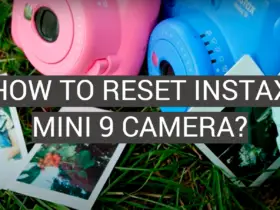
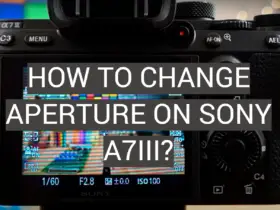
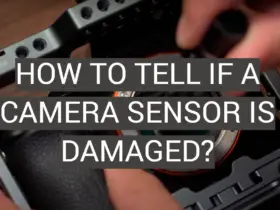
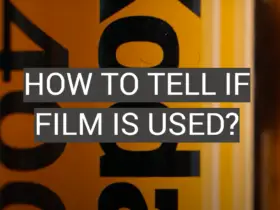

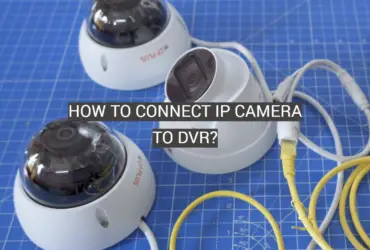
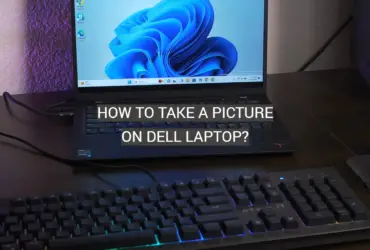

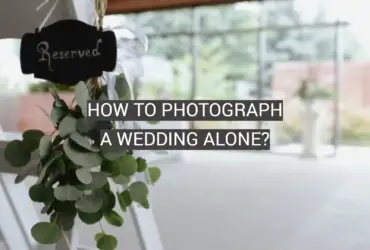
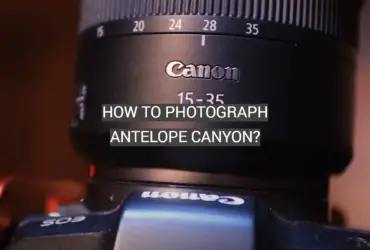
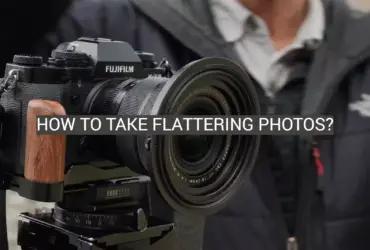
I have had a few occasions when I have noticed spots on my camera sensor. It can be difficult to tell if the sensor is actually damaged, or if it is just dirt or dust that has accumulated on the surface. In most cases, the spots are not a major issue and can be cleaned off relatively easily. However, if there is significant damage to the sensor, then it will need to be repaired or replaced.
If you are seeing spots on your camera sensor, the best thing to do is to take it in for a check-up. A professional can determine whether or not the sensor is damaged and needs to be repaired. If you are trying to clean the sensor yourself, there are some tips that can help. First, use a blower brush to remove any loose particles from the surface of the sensor. You can also try using a mild detergent and water mixture to clean the sensor, but be very careful not to get any of the liquid inside the camera.
I’m a photographer and I’ve had my fair share of camera sensor damage. Out of all the ways to damage a camera sensor, laser damage is the worst. It’s not only hard to detect, but it can also be expensive to repair.
The first time I ever encountered laser damage was when I was photographing a concert. I had my camera set up on a tripod and was using a long exposure to capture the light show. Suddenly, I heard someone say “laser!” and I turned around just in time to see a green laser pointer beam right into my lens. My camera sensor was ruined.
Since then, I’ve had two other incidents where someone has pointed a laser at my camera. In both cases, the lasers were powerful enough to cause immediate damage to the sensor. Luckily, both times the cameras were still under warranty so the repairs were covered by the manufacturers.
If you’re ever in a situation where you think someone might be pointing a laser at your camera, try to move out of the way as quickly as possible. And if your camera does get hit by a laser, bring it in for repairs immediately. The sooner you address the damage, the better chance you have of salvaging your photos.
I’ve had my fair share of camera damage. In fact, I think my first camera was a Kodak Brownie that I got for my 9th birthday. I loved that camera! I could take pictures of anything and everything. I was so proud when I developed the film and saw the images for the first time.
But over time, the camera stopped working properly. It would take blurry pictures, or pictures with a lot of noise. I eventually had to get a new camera because the old one just wasn’t working anymore.
The same thing happened with my phone camera. It would take blurry pictures, or pictures with a lot of noise. And eventually, it just stopped working altogether.
But there are ways to tell if your phone camera is damaged. Here are a few tips:
1) Check the picture quality. If your pictures are blurry or have a lot of noise, then your camera may be damaged.
2) Check the lens. If the lens is dirty or scratched, then it may not be taking clear pictures.
3) Check the flash. If the flash doesn’t work properly, then your pictures may come out dark.
When my camera sensor was damaged, I wasn’t sure how to tell if it was still working. I did a little research and found a few ways to check. The easiest way is to take a picture of something bright, like the sky or the sun. If there are black spots on the photo, then the sensor is most likely damaged. Another way to check is by taking a picture of something with lots of contrast, like a black and white photo. If there are white spots on the photo, then the sensor is damaged.